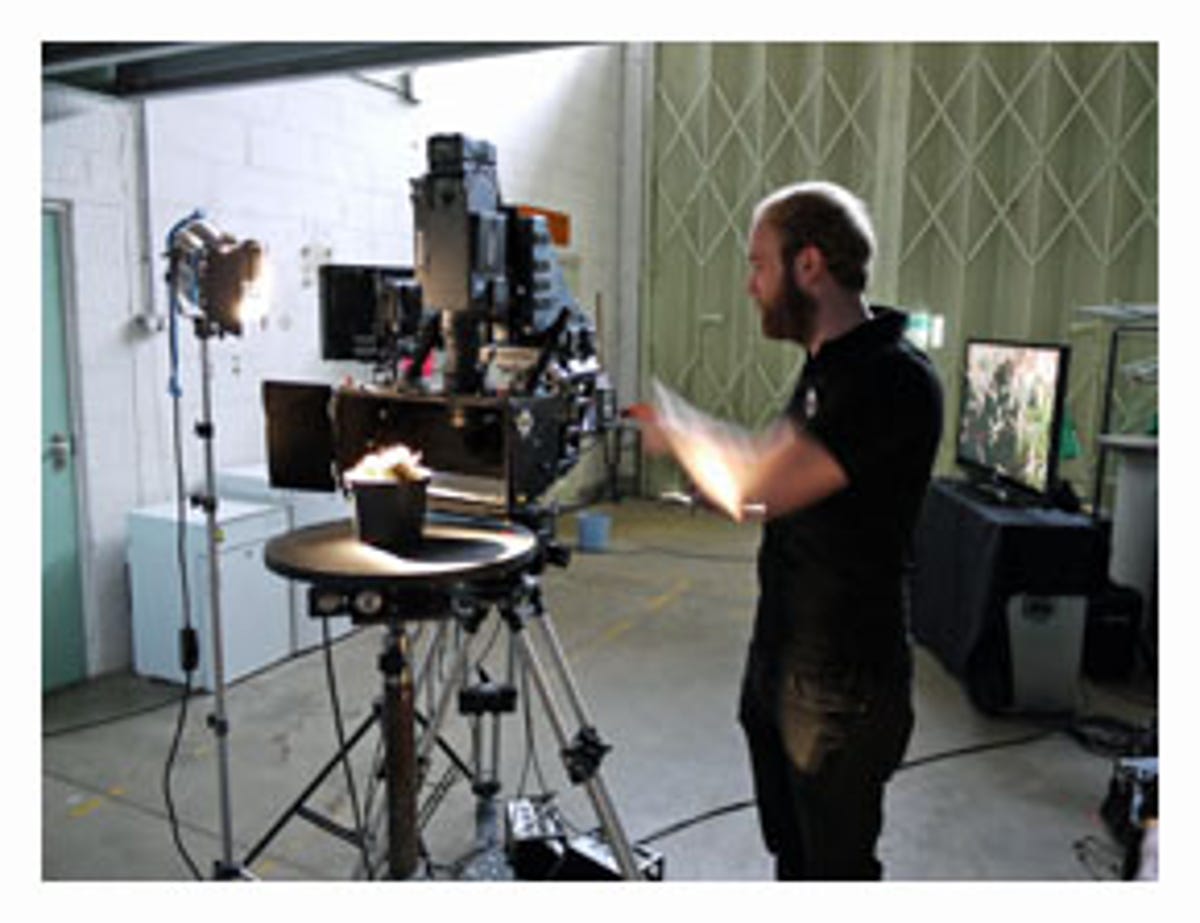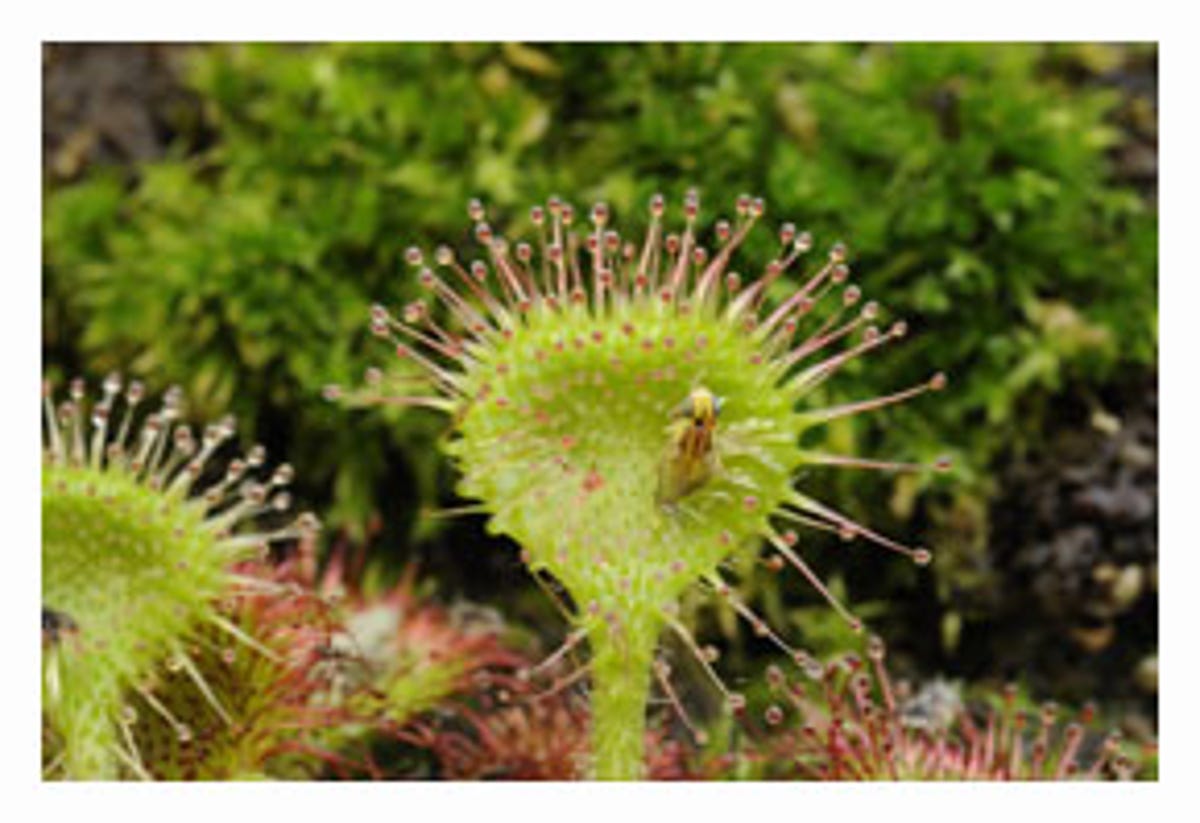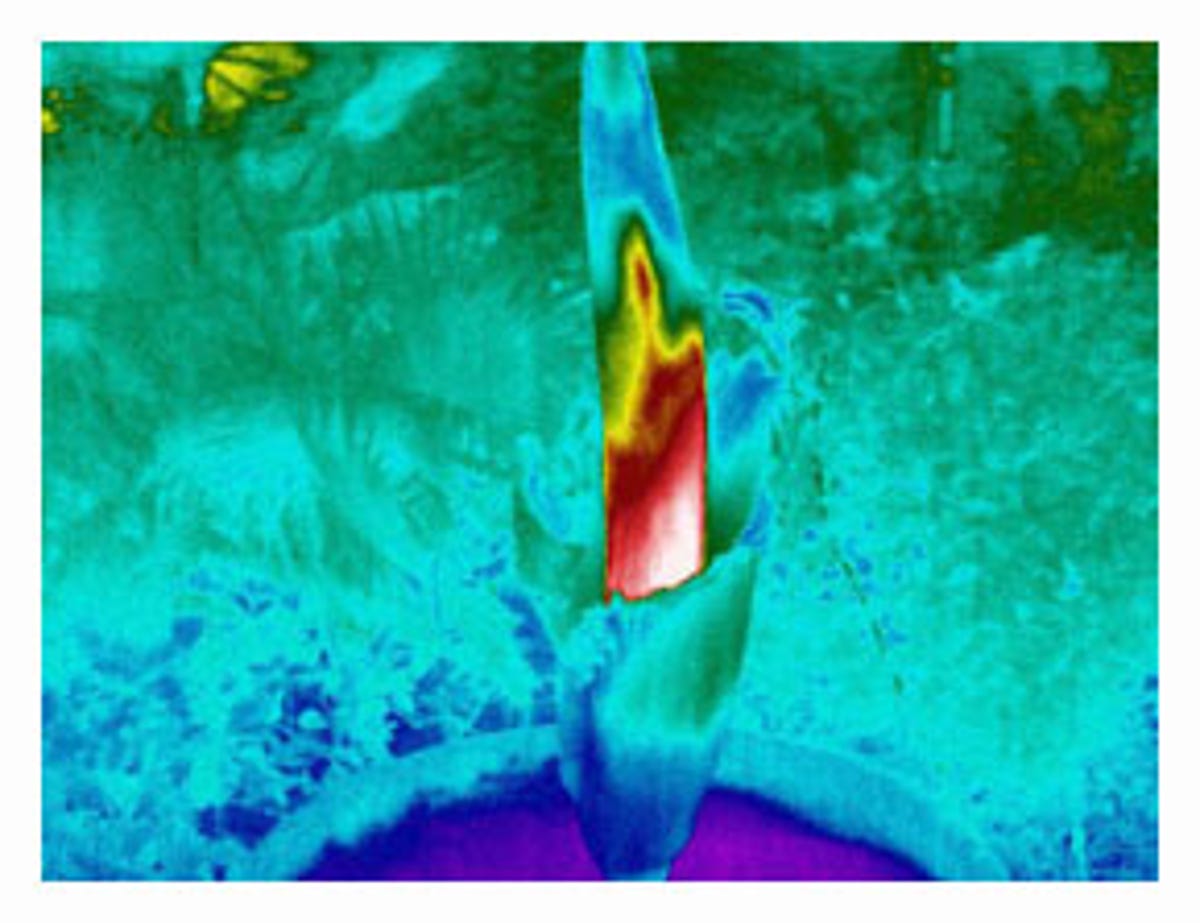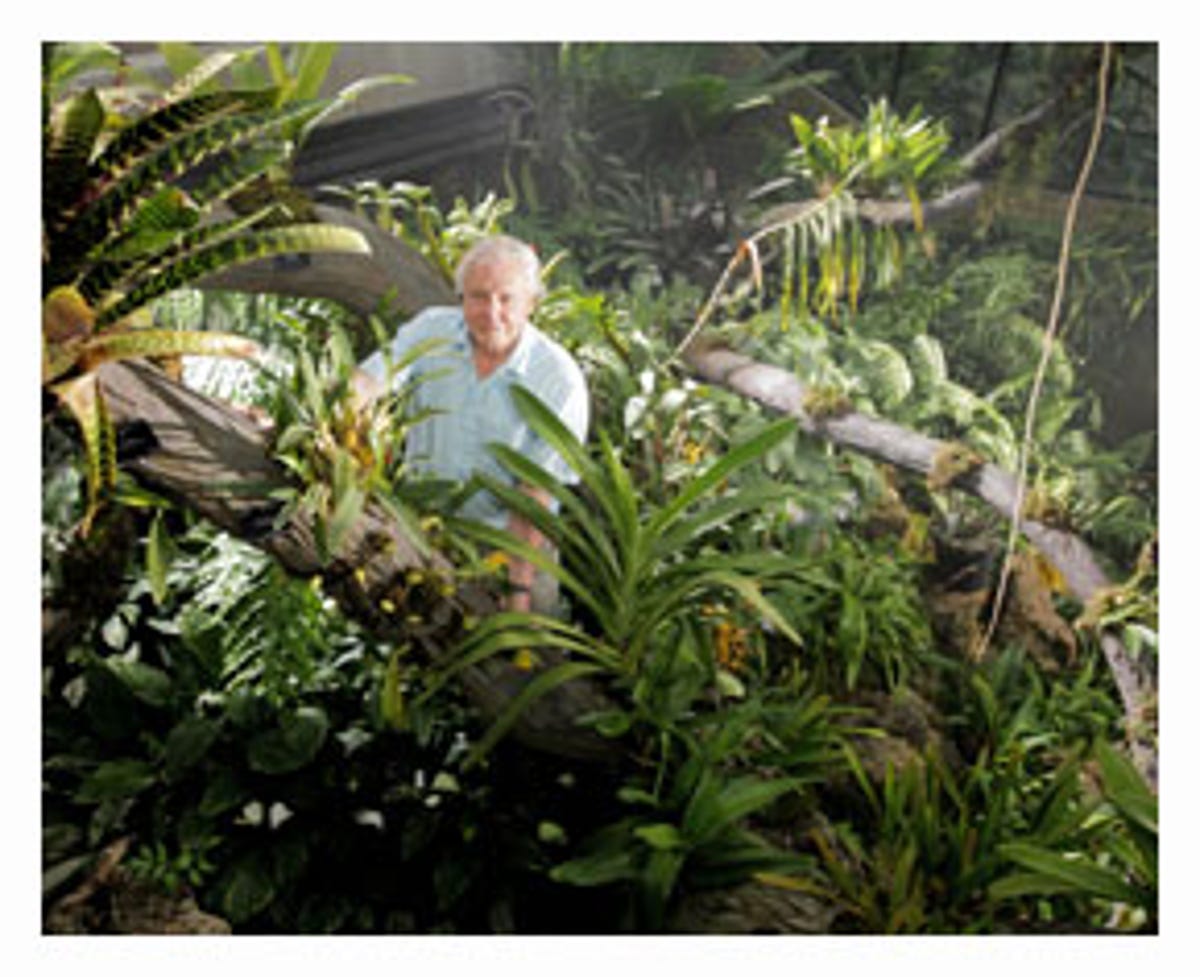
Sir David Attenborough has turned to plants for his new 3D documentary series, Kingdom of Plants 3D, and as part of his promotional tour he and executive producer Anthony Geffen spoke with CNET UK and a couple of other journalists at the place it was filmed — Kew Gardens.
They spoke about how it would be “absolute lunacy” to shoot animals like lions and tigers in 3D, how it’s no good producing a 3D film that’s boring when watched in 2D and about Bono giving Sir David an iPod nano.
The solid-gold national treasure also talks about his builder’s mobile phone — with integrated spirit level — how he took apart his motorbike as a young chap and put it back together again and how there’s no point having a quiz game in 3D. Oh, and Geffen is convinced there will be an iPad or other tablet next year with built-in no-glasses 3D.
Here’s the edited transcript of the full interview:
Do you have a favourite piece of personal technology?
Sir David: “I am still working with a catapult. I have a builder’s mobile phone that has a spirit level on it. I am not a techno chap.”
Anthony Geffen: “Bono gave him [Sir David] an iPod. He has an iPad.”
Sir David: “[When growing up, I had] a Sturmey-Archer three-speed Rally Super Sports, which I took apart and reassembled, and it ran again.”
Geffen: “He has more lenses than anyone I have ever known.”
Are there any problems shooting in 3D?
Sir David: “The technical possibilities are huge, but it also creates restrictions. One stems from the sheer size of the apparatus. The other one, which is quite a profound difficulty: you can’t use long-focus lenses. You can’t use a 150mm lens, or 100mm, or if you did, you’d have to go to a heck of a lot of trouble to sort it out.
“If you said to a top-grade wildlife cameraman, ‘I want to you go wild and shoot a really sensational film that’s going into the IMAX and knock them out, but you can only use a 75mm lens,’ he would say, ‘Forgive me, but you’re nuts. How am I supposed to compete? I can’t.’
“And he’s right — it’s no good producing a 3D film which in 2D is boring. The 3D films you make have to be exciting in 2D and even more exciting in 3D. If they are boring in 3D, that’s death. So you have to pick things that are [exciting] within the technical capacity of the equipment. That means you have to be able to get quite close to animals, and that means that delicate and shy creatures, which are the mainstay of documentary films, you can’t film them.


“When Anthony first started talking about moving into 3D, I became so apprehensive about it I said we ought to start with fossils because they don’t take flight all that easily and you can get quite close to them. Also, CGI is very exciting in 3D. So fossils enabled us to do that and bring the animals to life using CGI. That was our first attempt together and it worked well, won awards and so on.
“Then what? We thought in fact penguins are pretty good, because penguins are all identical and they don’t give a damn whether you are there or not. If your camera man says, ‘God, this is boring,’ and moves away, which is what they tend to do, there is another one sitting alongside that looks exactly the same. So we made this film in South Georgia.
“So what next? Flowers. And that caused more technical problems, but problems that were solvable with the new equipment. So that’s how we ended up doing plants.
“Those were practical reasons. What I couldn’t have known is how was how fantastic, how transcendental, how hypnotic these things are when you see them in 3D. Well, I probably could, but the whole business of a flower unfurling its petals and seeing an insect coming in [looks amazing]. I sat there in the editing suite and my jaw hit the floor. It paid off more than I could have imagined.
“You can see things that absolutely take place that no human eye has ever seen before. You have never seen bamboo go up before. Never seen the way flowers open. It is all true, it’s not made up, it’s actuality. You can move out of the human time frame and into a different one.
Are there some aspects of wildlife you can’t film in 3D?
Sir David: “3D causes yourself a lot of problems, and I don’t think 3D is as natural as 2D was. Maybe we’ll solve them. If someone had said 100 years ago, ‘I’m going to invent a way that sends pictures over the air and you’ll have a little box that picks them up,’ I would have said, ‘Grow up,’ so it’s dangerous to say they won’t solve the difficulties, they may. They are already solving some of the problems of size, dimensions and so on. It hasn’t happened yet, but I hope it does.”


Geffen: “Galapagos [his next 3D documentary project with Sir David using the same crew] is taking all the elements that we’ve done on our three shows and moving it on, it has live action animals, has animation and will have some macro photography. We know that the Galapagos animals are luckily pretty tame. We certainly wouldn’t go out to North Africa and start filming lions and tigers in 3D, it would be absolute lunacy. We are just beginning to have a slight zoom on the camera.”
Sir David: “Underwater 3D, which we will be doing, is just marvelous. Underwater cameras… with the creatures moving in 3D. There should be sea lions cavorting about and penguins and marine iguanas sitting at the bottom of the ocean nibbling seaweed.”
Aren’t the number of people with 3D TVs quite low?
Geffen: “You have to think of it as ‘it grows out’. There were 100,000 or so when we were doing our films, there is now 200,000. There is a large audience who can watch Sky Atlantic. David was happy to do the 2D simulcast. We have broadened this out, there will be an exciting app at Kew, which David is involved in, which has a lot of clips from the series.
“Thirty days after the broadcast, there will be a Blu-ray and a DVD out. There are supposed to be 3 million people in this country with some access to 3D. The 2D will also come out. Actually, that’s a pretty big reach. Then there’s an IMAX version. Nintendo will have a two-minute version which will go to 10 million kids with a 3DS.”
Will watching this in 2D will drive people to 3D?


Sir David: “I think so. It seems to be that if you put it out on TV, everybody with a 3D set will watch it. There’s not a lot of choice anyway and it will be shown several times. If other people watch it, a proportion of people will say, ‘That was pretty wonderful, why don’t I get a set?’ So to restrict it to 3D and just let those people see it, that’s not a good idea.”
Geffen: “But we made it for 3D, we had to push it there. It will be factual documentaries that will push 3D. There will be programmes and series like this, because we’re controlling the imagery from beginning to end, unlike a feature film where you can’t control the imagery from end to end.”
Have you looked at 3D without glasses?
Geffen: “There is definitely an iPad [or other types of tablet] on its way for 3D without glasses. I don’t think television is quite there yet because of the ghosting when you move your head. That’s the game changer, because you don’t need to worry about the glasses.”
Sir David: “I was responsible for BBC Two when we introduced colour. For various technical reasons we didn’t have the cameras, we didn’t have the studios, we didn’t have the OB unit to colourise everything immediately. Some programmes were in colour, some were in black and white and I can imagine that happening for 3D. Because after all, do you want to go to all that trouble to have a quiz game in 3D? Why would you bother? There will be gala occasions where you will say, ‘Hooray it’s in 3D!'”


Geffen: “You have the danger of the high-end and the low-end programmes. If you try and do everything, you get a lot of low-quality programmes and people say, ‘So what? This whole medium is wasted.’ If you don’t deliver decent 3D, that’s a problem for a medium. HD is fantastic. I think I have gone back to 2D with a better vision of how to do it because you have to work so hard in 3D to make it work.
“Everyone is saying 3D has failed — not true. 3D works within the right expectations, just like colour grew. It doesn’t need to work with everything. Tablets next year will make a massive difference. Let’s say 20 million tablets come in, and something like our stuff is mesmerising. The third thing is good content.”
Sir David: “There is a programme called Dirty Big Machines — I would love to see that in 3D, wouldn’t you?”
The first episode of Kingdom of Plants 3D with David Attenborough airs on 26 May 2012 at 6pm on Sky 3D and simulcast in 2D on Sky Atlantic HD.




